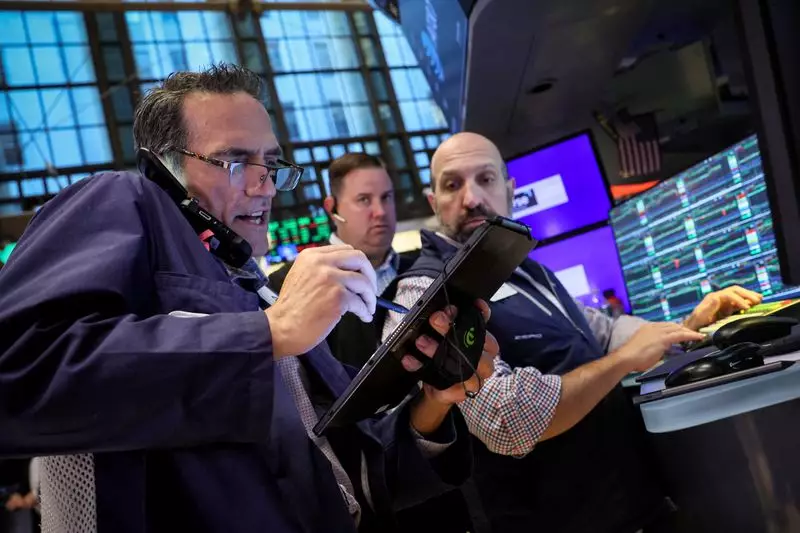As recent market sell-offs continued to rock equity markets around the world, investors are left pondering the future outlook for stocks. With concerns over the U.S. economy and disappointing tech earnings looming large, the bullish sentiment that has defined the market in recent years is starting to wane. The S&P 500 saw a steep decline of nearly 6% from its July peak, raising questions about the sustainability of the rally that has propelled it to record highs. The Nasdaq Composite, heavily weighted with tech stocks, also faced significant losses, triggering its first 10% correction since early 2022. This sudden downturn has left investors in a quandary as they try to navigate the uncertainty ahead.
The recent sell-off has prompted many investors to reevaluate their risk exposure and ponder whether they are adequately positioned for the challenges that lie ahead. Mark Travis, a portfolio manager at Intrepid Capital, highlights the importance of assessing risks, particularly in the face of elevated valuations that have become a cause for concern. The market’s rapid ascent this year, driven by technological advancements such as artificial intelligence, has created a bubble-like environment where valuations have surged beyond traditional metrics. The reluctance of the Federal Reserve to act swiftly on interest rates has further fueled apprehension among investors, leading to a mass exodus from riskier assets.
Despite the prevailing uncertainty, some investors view the recent sell-off as a chance to uncover hidden gems in an otherwise turbulent market. Lamar Villere, a portfolio manager at Villere & Co, sees this as an opportunity to capitalize on the dip in prices, especially for high-growth stocks that have been out of reach due to their lofty valuations. The resilience shown by certain tech giants, such as Apple and Meta Platforms, in delivering strong financial results has provided a glimmer of hope for investors seeking refuge in quality companies with robust fundamentals. The search for undervalued stocks in an overextended market has become a priority for those looking to capitalize on potential upside in the long term.
Amidst the fear and uncertainty gripping the market, the concept of a “fear trade” has gained traction as investors seek refuge in safe-haven assets to protect their portfolios. The spike in the Cboe Volatility Index, often referred to as Wall Street’s fear gauge, reflects growing nervousness among market participants as they brace for further turbulence. The drastic fall in bond yields, signaling heightened demand for government securities, underscores the prevailing anxiety surrounding future economic prospects. The anticipation of an economic slowdown and the lingering specter of recession have cast a shadow over the market, triggering a flight to safety as investors adopt a defensive stance in anticipation of further downside risks.
As markets grapple with uncertainty and volatility, the road ahead appears fraught with challenges and opportunities. The looming specter of recession, coupled with concerns over high valuations and economic headwinds, has left investors on edge as they attempt to navigate the treacherous waters of the current market environment. The need for a cautious approach, armed with a keen understanding of risk factors and valuation metrics, has become paramount for investors seeking to weather the storm and emerge stronger on the other side. In times of crisis, the true test of resilience lies in one’s ability to adapt and thrive amidst adversity, a lesson that investors must heed as they chart their course through the choppy waters of the financial markets.

